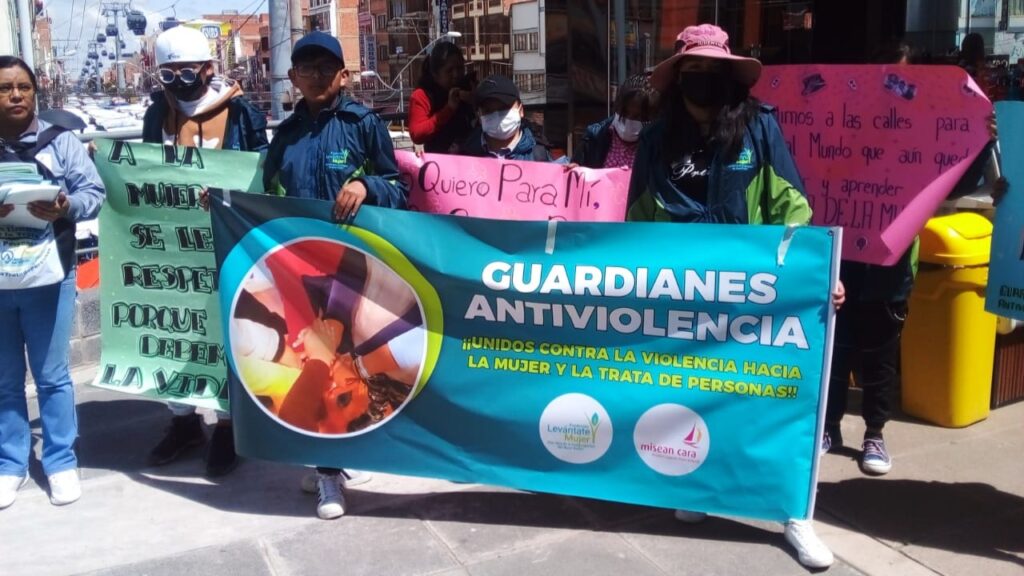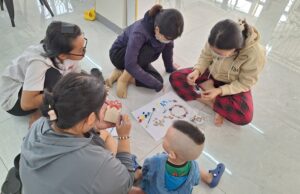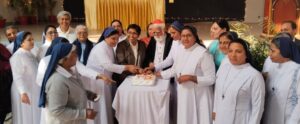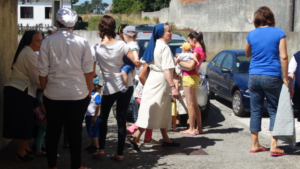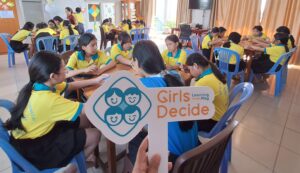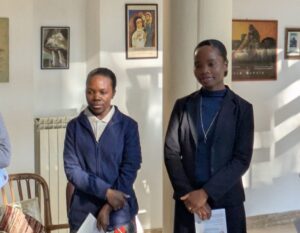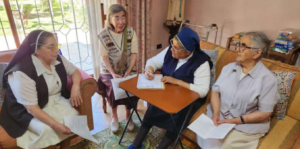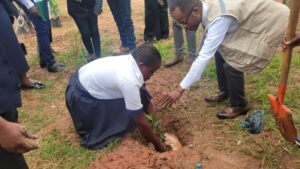By Good Shepherd International Foundation
Bolivia is one the Latin America countries with the highest reported cases of human trafficking. Poverty, social inequality, migration, domestic violence, lack of education and family disintegration are factors contributing to this horrific and pervasive crime and create a fertile ground for traffickers, who often use social media to lure their victims with fraudulent job offers or opportunities. Girls and young women from rural and poor areas, as well as member of indigenous communities, are disproportionately affected and are the most vulnerable to trafficking for sexual exploitation.
In this context, Fundación Levántate Mujer, with the support of GSIF, has implemented a comprehensive project against human trafficking in high-risk areas such as El Alto, La Paz, and Yapacaní. The project focuses on three key areas: survivor assistance, awareness and prevention, and advocacy. At the Sartasim Kullakita therapeutic center, each year, around 50 girls rescued from trafficking receive psychological support, legal counseling, and life skills development. A dedicated team of professionals work closely with each participant to help them develop and strengthen the resilience needed to heal from trauma and create a new life plan, enabling them to regain confidence and retake control over their own futures. Parents of the survivors also receive guidance through self-support groups to participate in their daughters’ social reintegration and learn how to accompany them over time, creating a safe and supportive environment at home. In addition, the girls take part in technical training in cooking in order to develop new skills that will enable them to integrate economically and gain access to new working opportunities.
To educate and empower communities to recognize and address human trafficking, the project has also carried out prevention campaigns reaching more than 3,600 young people and 75 teachers, along with community awareness training for neighborhood associations and local leaders. A national social media campaign, designed to reach more than 60,000 people, complemented the awareness-raising activities and spread messages about prevention and support for survivors.
By strengthening community knowledge and collaboration with local authorities and law enforcement, the project not only works to restore the dignity of survivors and ensure their reintegration into a safe environment but also aims to drive systemic change and long-term prevention in order to address the root causes of human trafficking. In the face of a multi-faceted problem, intertwining systemic, community and individual levels, the answer can only be collective and rely on empowerment, training, awareness, and advocacy.
Access the original version here.
